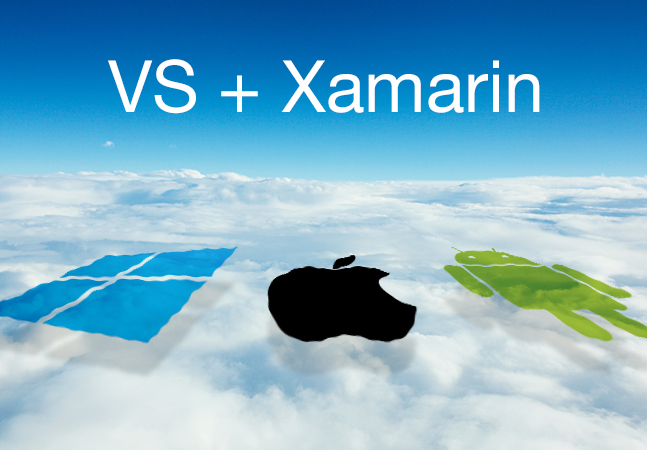
Microsoft announced several enhancements and new offerings for its Cognitive Services cloud APIs that help developers leverage artificial intelligence (AI) capabilities in mobile and other apps.

Azure DevOps Projects, introduced several months ago and powered by Visual Studio Team Services, is getting closer to emerging from its public preview as the VSTS team continues to add functionality, including support for more programming languages.

Microsoft has published one-stop guidance for sorting out myriad Azure cloud services available for Xamarin mobile app development projects -- in the form of a poster.

C#/XAML for HTML5 from Userware, also called CSHTML5, allows .NET developers to write Web apps in C# and XAML by compiling the files to HTML5 and JavaScript -- or to migrate existing Silverlight apps to the Web.

After hiring the original developer of a popular Python extension, taking over the project and hiring even more Python coders to further develop it, the Visual Studio Code team has announced the editor is now shipping with the popular Anaconda distribution.

Expert advice on using the latest techniques with Xamarin for your mobile development.

The January 2018 update of Microsoft's Visual Studio Code editor incorporates the new TypeScript 2.7.1 edition, allowing for quicker fixing of errors in TypeScript and even regular JavaScript files.

We catch up with Abel Wang, senior cloud developer advocate at Microsoft and Visual Studio Live! keynote presenter, to ask him about exactly how feature flags make all the difference when it comes to implementing DevOps on a higher level in the enterprise.

Microsoft's Visual Studio Code team has updated the popular, open source Python extension it acquired a few months ago, adding yet more functionality to the tool that has been installed more than 6 million times.

Windows Template Studio, Microsoft's open source, wizard-driven Visual Studio 2017 extension for coding UWP applications, is out in version 1.7 with new support for Visual Basic and the Prism framework.

Microsoft yesterday shipped TypeScript 2.7, adding a bunch of new features as usual -- so many that a debate about bloat in the programming language was sparked on a social coding site.

SQL Server expert Leonard Lobel explains exactly how Always Encrypted, Dynamic Data Masking, RLS and more can make a real difference in securing your enterprise databases, plus he shares his favorite overall new feature in SQL Server 2016.

Imaging dev tools specialist LEAD Technologies announced the release of LEADTOOLS Version 20 with new libraries leveraging .NET Standard, Microsoft's effort to unify .NET API usage across different platforms and projects such as .NET Framework, .NET Core and Visual Studio Tools for Xamarin.

It's been just a couple week since the second preview of Visual Studio 2017 version 15.6, with the latest iteration featuring improvements to Visual Studio Build Tools, Snapshot Debugging and more.

Putting a new twist on the term "low code," a new project from Microsoft Garage lets developers export wireframe sketches into Visual Studio, turning them into source code for basic UI constructs such as labels, buttons and text fields.

Microsoft this week announced a new analytics tool that lets Windows developers view details about desktop application performance and reach.

Visual Studio Code, being based on the open source Electron framework, is among applications susceptible to a remote code execution vulnerability just announced and patched by the Electron team this week.

In response to developer feedback, Microsoft is taking a page from the growing visual, low-code development approach to simplify Big Data analytics in the cloud with Azure Data Factory.

As part of 2018's first major release of Progress Telerik developer tools for .NET-centric development, the Telerik UI for Xamarin offering sports several new features and updates.

The lightweight, cross-platform offering combines functionality found in tools like SQL Server Management Studio and the Visual Studio Code editor in order to help data developers and operations pros work with SQL Server, Azure SQL Database and Azure SQL Data Warehouse on Windows, Mac or Linux machines.